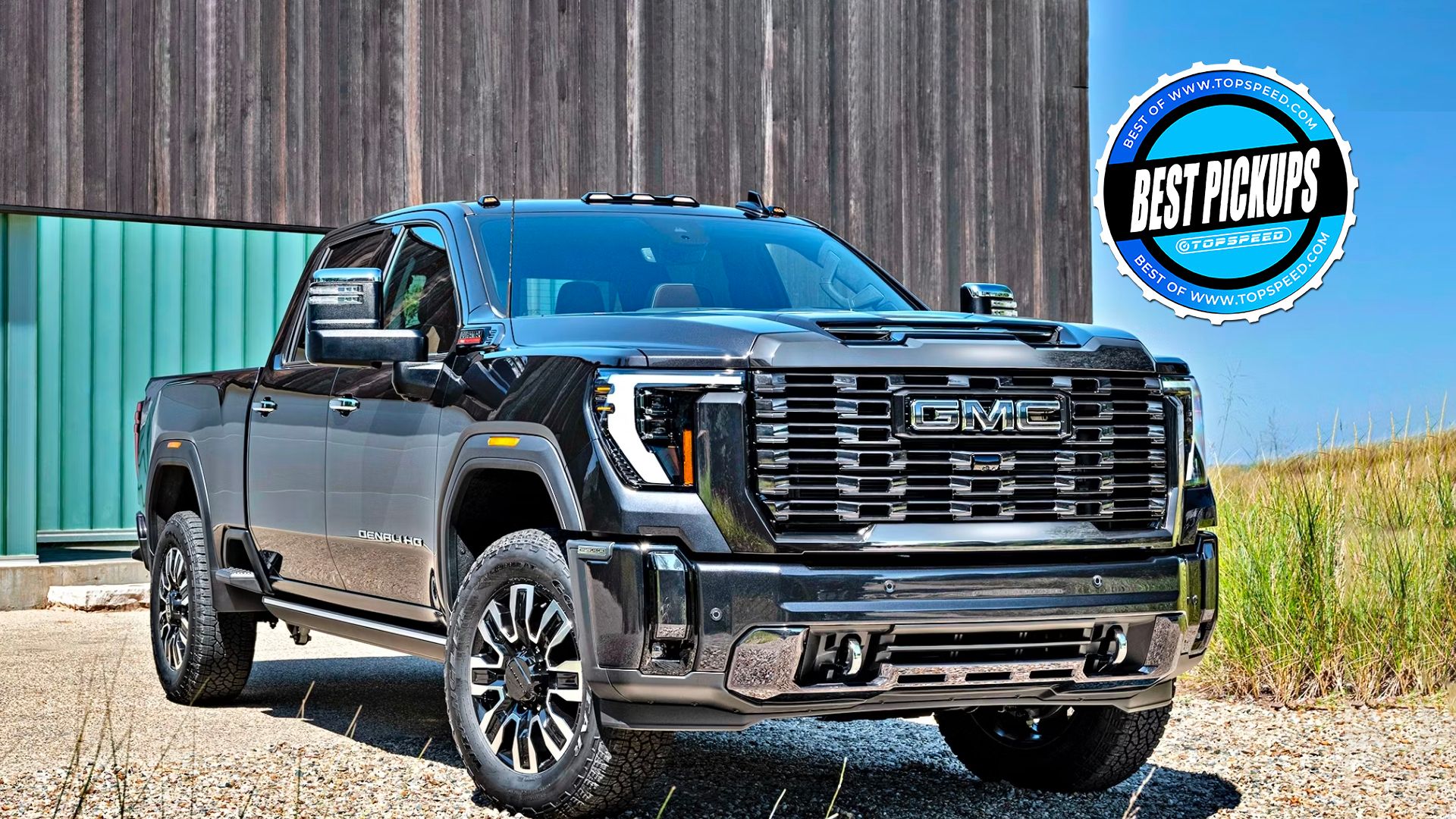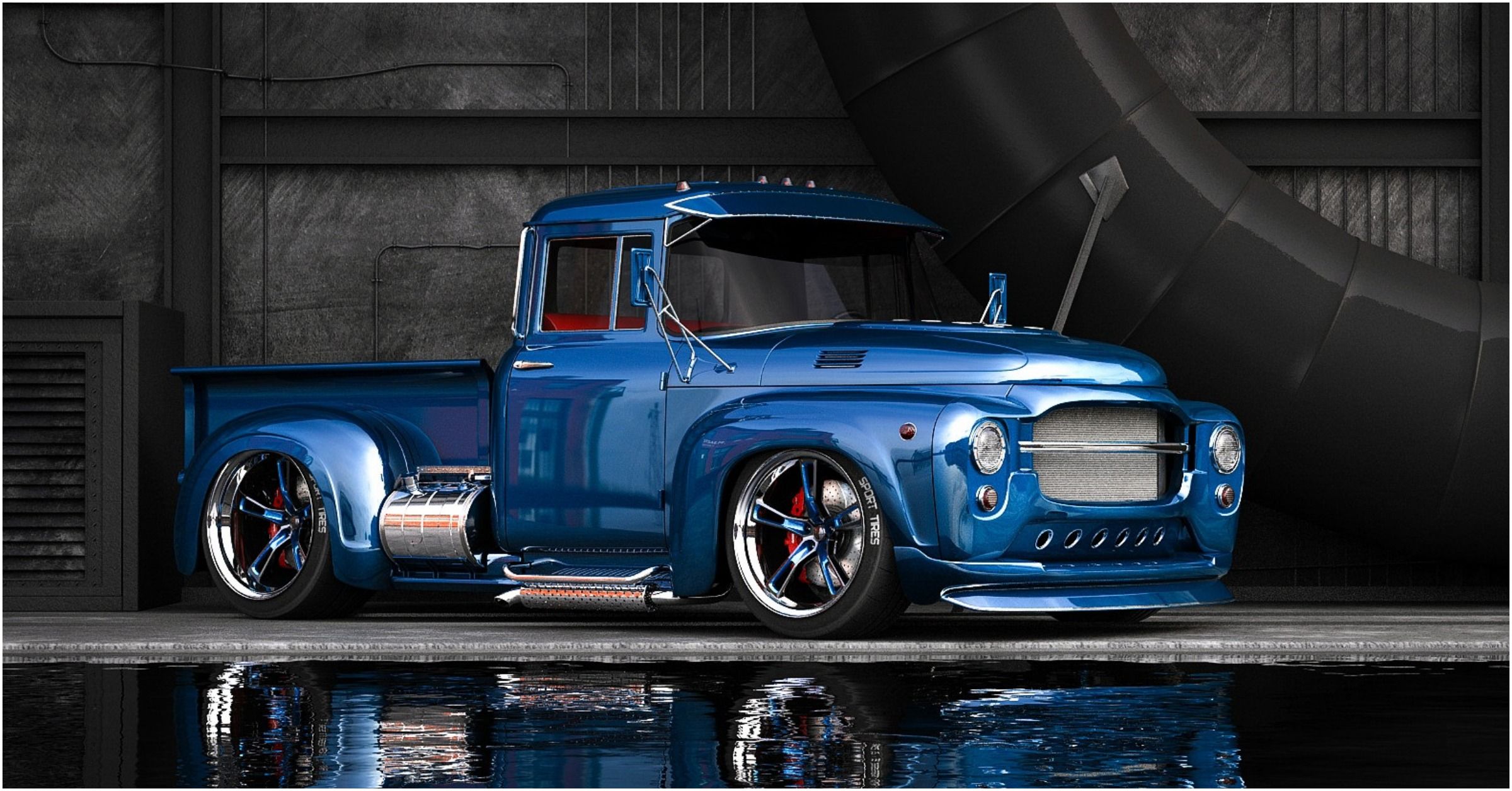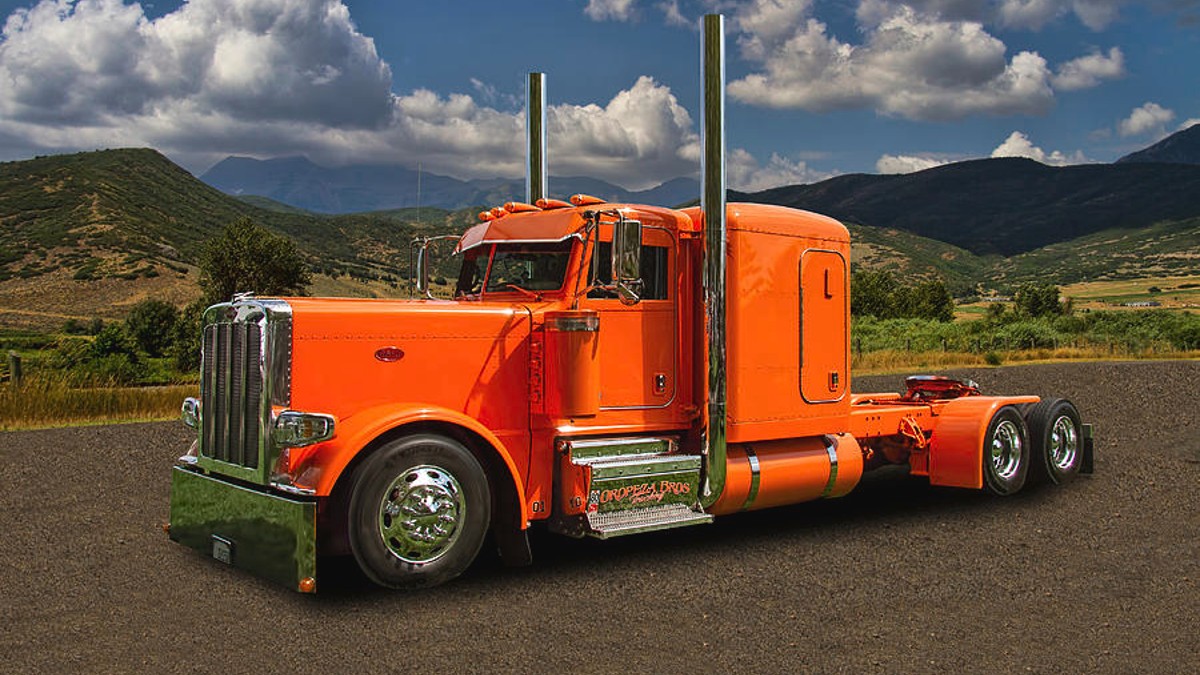Trucks Under 26000 GVW For Sale: Your Guide to Commercial Vehicle Versatility cars.truckstrend.com
In the vast landscape of commercial vehicles, there’s a particular category that offers an unparalleled blend of versatility, efficiency, and operational freedom: trucks under 26,000 pounds Gross Vehicle Weight (GVW). For many businesses, owner-operators, and specialized service providers, these trucks represent a sweet spot, providing ample capacity for a wide range of tasks without the stringent licensing requirements associated with heavier commercial vehicles. If you’re looking to expand your fleet, start a new venture, or simply upgrade your current workhorse, understanding the nuances of trucks under 26,000 GVW is crucial.
This comprehensive guide will delve into what makes these trucks so valuable, explore their common applications, discuss key considerations for purchasing, and offer practical advice to help you navigate the market successfully.
Trucks Under 26000 GVW For Sale: Your Guide to Commercial Vehicle Versatility
Understanding the 26,000 GVW Sweet Spot: Why This Category Matters
Gross Vehicle Weight (GVW) refers to the maximum operating weight of a vehicle as specified by the manufacturer, including the vehicle’s chassis, body, engine, fuel, accessories, driver, passengers, and cargo. The 26,000-pound (11,793 kg) threshold is significant primarily due to federal regulations in the United States and similar rules in other countries.
The CDL Exemption:
The most compelling reason for the popularity of trucks under 26,000 GVW is the Commercial Driver’s License (CDL) exemption. In most U.S. states, a CDL is required to operate any single vehicle with a GVWR of 26,001 pounds or more, or a combination of vehicles with a GVWR of 26,001 pounds or more, including a towed unit weighing more than 10,000 pounds. This means that a driver with a standard Class D (or equivalent) driver’s license can legally operate a truck under 26,000 GVW, significantly widening the pool of potential drivers and reducing operational overhead. For small businesses, this can translate into substantial savings on training, compliance, and driver availability.
Operational Efficiency and Maneuverability:
Beyond licensing, these trucks often boast lower operating costs compared to their heavier counterparts. They typically consume less fuel, incur lower insurance premiums, and their maintenance can be less complex and expensive. Their more compact size (relative to Class 7 or 8 trucks) also makes them more agile, easier to maneuver in urban environments, residential areas, and tight job sites, improving delivery times and overall efficiency.
Versatility and Customization:
The chassis design of trucks in this weight class allows for a wide array of body types and custom upfits, making them incredibly versatile across numerous industries. Whether you need a simple box truck for deliveries or a specialized service vehicle, the under-26K GVW platform can often accommodate your needs.

Common Applications and Industries for Under 26K GVW Trucks
The adaptability of trucks under 26,000 GVW makes them indispensable across a broad spectrum of commercial activities. Here are some of the most common applications:
- Delivery Services: Parcel delivery, food and beverage distribution, linen services, and last-mile logistics heavily rely on box trucks and refrigerated trucks in this category.
- Landscaping and Tree Services: Light-duty dump trucks, stake body trucks, and chipper trucks are essential for hauling equipment, mulch, soil, and removed debris.
- Construction and Trades: Plumbers, electricians, HVAC technicians, roofers, and general contractors utilize service trucks, flatbeds, and small dump trucks for tools, materials, and debris removal.
- Waste Management: Smaller-scale waste collection, recycling, and junk removal services often employ compact dump trucks or specialized refuse bodies.
- Moving and Storage: Local moving companies and self-storage facilities frequently use 16-foot to 26-foot box trucks for household goods transportation.
- Specialized Services: This includes mobile mechanics, equipment rental companies, sign installers, mobile detailing services, and light-duty towing operations.
- Fleet Services: Utility companies, municipalities, and university campuses use these trucks for maintenance, repairs, and various logistical needs.


Types of Trucks Under 26,000 GVW
The chassis of a truck under 26,000 GVW can be configured with various body types to suit specific functions:
- Box Trucks (Straight Trucks): The most common type, featuring an enclosed cargo area. Available as dry vans (for general freight) or refrigerated units (reefers) for temperature-sensitive goods.
- Flatbed Trucks: Open beds ideal for hauling oddly shaped or oversized cargo that doesn’t require protection from the elements. Can be equipped with removable stakes (stake body).
- Dump Trucks: Equipped with a hydraulic lift system to raise the bed and dump loose materials like sand, gravel, dirt, or debris. Typically smaller in capacity for this GVW class.
- Service/Utility Trucks: Feature enclosed compartments on the sides for organizing tools and equipment, with an open bed area in the middle. Popular with tradespeople.
- Cab & Chassis: This is the base vehicle without a rear body, allowing businesses to install custom bodies specific to their unique needs (e.g., custom mobile workshops, specialized equipment mounts).
- Tow Trucks (Light Duty): Wreckers designed for towing passenger cars and light commercial vehicles.
Key Considerations When Buying a Truck Under 26,000 GVW
Purchasing a commercial truck is a significant investment. Careful consideration of several factors will ensure you make the right choice for your business needs.
-
New vs. Used:
- New: Offers the latest technology, full warranty, and often better fuel efficiency. Higher initial cost but potentially lower immediate maintenance.
- Used: Lower upfront cost, wider selection of models and body types. Requires thorough inspection and research into maintenance history. Can be an excellent value if well-maintained.
-
Budget and Financing:
- Beyond the purchase price, factor in registration fees, insurance, taxes, potential upfitting costs, and a reserve for maintenance.
- Explore financing options: commercial truck loans, lines of credit, or leasing. Lenders often have specific requirements for commercial vehicle financing.
-
Application and Payload Needs:
- What will the truck primarily be used for? How much weight will it typically carry (payload)? Overloading a truck can lead to safety issues, fines, and premature wear.
- Consider the cargo dimensions and weight distribution.
-
Engine and Transmission:
- Diesel vs. Gas: Diesel engines offer better fuel economy and longevity for heavy-duty, long-haul applications, but have higher maintenance costs. Gas engines are typically cheaper to buy, simpler to maintain, and good for shorter, stop-and-go routes.
- Automatic vs. Manual: Automatic transmissions are easier to drive, especially in traffic, and require less driver training. Manual transmissions can offer better fuel economy and control for certain applications but are less common in modern commercial trucks.
-
Body Type and Upfitting:
- Does the truck come with the body type you need, or will you need to purchase a cab and chassis and add a custom body? Factor in the cost and lead time for upfitting.
- Consider features like liftgates, ramp systems, shelving, and power inverters.
-
Maintenance History and Inspections (for Used Trucks):
- Always request detailed maintenance records. A well-documented history is a strong indicator of a truck’s condition.
- A pre-purchase inspection (PPI) by a trusted, independent mechanic specializing in commercial vehicles is non-negotiable. This can uncover hidden issues that might cost thousands down the line.
-
Brand and Reliability:
- Research reputable manufacturers known for durability and good parts availability, such as Isuzu, Hino, Ford, Freightliner, International, and Chevrolet/GMC.
- Check online reviews and forums for common issues with specific models.
-
After-Sale Support:
- Consider the availability of parts and service centers for your chosen brand in your operational area. Downtime can be costly for a business.
Where to Find Trucks Under 26,000 GVW For Sale
The market for these versatile trucks is robust. Here are common avenues to find them:
- Commercial Truck Dealerships: Authorized dealers for new trucks (Isuzu, Hino, Ford Commercial, etc.) often also have a selection of certified used trucks.
- Online Marketplaces: Websites like TruckPaper.com, CommercialTruckTrader.com, and eBay Motors specialize in commercial vehicle listings. General marketplaces like Facebook Marketplace can also have private sellers.
- Auctions: Public auctions, government surplus sales, and fleet liquidations can offer competitive prices, but require more expertise in assessing vehicle condition.
- Rental Company Sales: Companies like Ryder, Penske, and Enterprise Commercial Trucks frequently sell off well-maintained trucks from their rental fleets. These often come with detailed service histories.
- Private Sellers: Check local classifieds or online forums for private sales, which can sometimes offer lower prices but require more diligence on the buyer’s part.
Tips for a Successful Purchase
- Define Your Needs: Before you even start looking, clearly outline your budget, payload requirements, desired body type, route characteristics (city vs. highway), and preferred fuel type.
- Set a Realistic Budget: Don’t just focus on the purchase price. Account for taxes, registration, insurance, immediate maintenance, and potential upfitting.
- Thorough Inspection is Key: For used trucks, a professional pre-purchase inspection is paramount. Check for rust, fluid leaks, tire wear, brake condition, engine noises, and transmission issues.
- Test Drive Extensively: Drive the truck under conditions similar to your typical operations. Pay attention to how it handles, brakes, shifts gears, and accelerates.
- Check VIN and History Reports: Use services like RigDig, Carfax (if applicable), or the National Motor Vehicle Title Information System (NMVTIS) to check for accident history, odometer discrepancies, and past ownership.
- Negotiate Smartly: Be prepared to negotiate the price, especially for used trucks. Have comparable listings in hand.
- Understand Financing: Shop around for the best commercial truck loan rates. Be aware of down payment requirements and loan terms.
- Factor in Insurance and Registration: Get insurance quotes before buying, as commercial insurance can be significantly higher than personal auto insurance. Understand state-specific registration and weight fees.
Potential Challenges and Solutions
- Challenge: Finding the "Perfect" Truck: The exact configuration you need might not be readily available, especially for used trucks.
- Solution: Be flexible with certain features, consider a cab & chassis for custom upfitting, or expand your search radius. Patience is key.
- Challenge: Hidden Mechanical Issues (Used Trucks): Even with a test drive, underlying problems might exist.
- Solution: Never skip a pre-purchase inspection by a qualified, independent commercial truck mechanic. Ask for detailed reports and estimates for any necessary repairs.
- Challenge: Securing Financing: New businesses or those with limited credit history might find commercial truck financing difficult.
- Solution: Explore alternative lenders specializing in commercial vehicles, consider a larger down payment, or look into leasing options.
- Challenge: Unexpected Upfitting Costs: Customizing a cab & chassis can be expensive.
- Solution: Get detailed quotes from multiple upfitters before purchase. Factor these costs into your initial budget.
- Challenge: High Maintenance Costs: Commercial trucks, even smaller ones, require regular and sometimes costly maintenance.
- Solution: Adhere strictly to the manufacturer’s recommended service schedule. Budget for preventative maintenance to avoid major breakdowns.
Pricing Table: Estimated Costs for Trucks Under 26,000 GVW For Sale
Please note that these are estimates and actual prices can vary significantly based on brand, year, mileage, condition, features, specific body type, and market demand.
| Type of Truck (Under 26,000 GVW) | Typical GVW Range (lbs) | New Price Range (USD) | Used Price Range (USD) – Low/Medium/High Condition | Common Manufacturers |
|---|---|---|---|---|
| Box Truck (Dry Van) | 19,500 – 25,999 | $60,000 – $110,000+ | $15,000 – $60,000+ | Isuzu, Hino, Ford, Freightliner, International, GMC |
| Box Truck (Refrigerated) | 19,500 – 25,999 | $90,000 – $150,000+ | $25,000 – $80,000+ | Isuzu, Hino, Ford, Freightliner, International |
| Flatbed Truck | 19,500 – 25,999 | $55,000 – $100,000+ | $12,000 – $55,000+ | Ford, Ram, Freightliner, International, Isuzu, Hino |
| Light-Duty Dump Truck | 19,500 – 25,999 | $65,000 – $120,000+ | $20,000 – $70,000+ | Ford, Ram, Freightliner, International, Hino |
| Service/Utility Truck | 19,500 – 25,999 | $70,000 – $130,000+ | $20,000 – $75,000+ | Ford, Ram, Chevrolet, GMC, Isuzu |
| Cab & Chassis | 19,500 – 25,999 | $45,000 – $85,000+ | $10,000 – $45,000+ | Isuzu, Hino, Ford, Freightliner, International, GMC |
Frequently Asked Questions (FAQ)
Q1: What does GVW mean?
A1: GVW stands for Gross Vehicle Weight, which is the maximum operating weight of a vehicle as specified by the manufacturer. It includes the vehicle itself, fuel, passengers, and all cargo.
Q2: Do I need a CDL for a truck under 26,000 GVW?
A2: In most U.S. states, no. A Commercial Driver’s License (CDL) is generally required for single vehicles with a GVWR of 26,001 pounds or more. However, always check your specific state’s Department of Motor Vehicles (DMV) or equivalent for exact regulations, as some specialized endorsements might apply depending on the cargo (e.g., hazardous materials).
Q3: What’s the typical fuel economy for these trucks?
A3: Fuel economy varies widely based on engine type (gas vs. diesel), load, driving conditions, and vehicle design. Gas trucks might get 6-10 MPG, while diesel trucks typically range from 8-15 MPG.
Q4: What are the most reliable brands for trucks under 26,000 GVW?
A4: Isuzu, Hino, Ford (F-series, E-series cutaways), Freightliner (M2 series), and International are consistently rated highly for reliability and durability in this segment.
Q5: How often should I service a commercial truck in this class?
A5: Adhere strictly to the manufacturer’s recommended maintenance schedule, which often includes oil changes every 5,000-10,000 miles (or specific hours of operation), regular fluid checks, brake inspections, and tire rotations. Preventative maintenance is crucial for commercial vehicles.
Q6: Can I finance a used commercial truck?
A6: Yes, absolutely. Many commercial lenders specialize in financing used trucks. Interest rates and terms will depend on the truck’s age, mileage, your creditworthiness, and the down payment.
Conclusion
Trucks under 26,000 GVW for sale represent a vital category in the commercial vehicle market, offering an ideal balance of capacity, operational efficiency, and accessibility due to their CDL exemption. Whether you’re a burgeoning startup, a seasoned contractor, or a specialized service provider, these trucks can be the backbone of your operations.
By thoroughly understanding your specific needs, diligently researching available options, conducting rigorous inspections, and planning for both initial purchase and ongoing operational costs, you can make an informed decision that empowers your business for years to come. The right truck in this versatile class is not just a vehicle; it’s a strategic asset that drives productivity and profitability.

